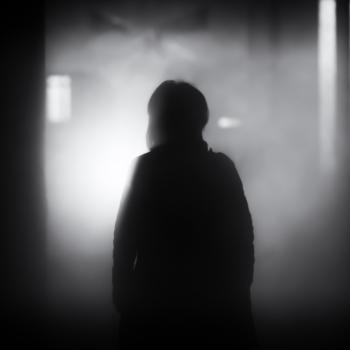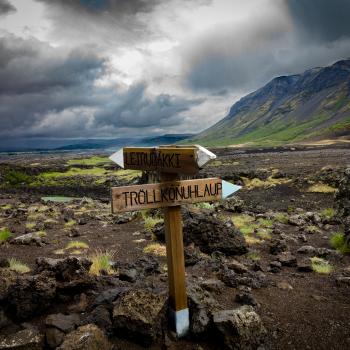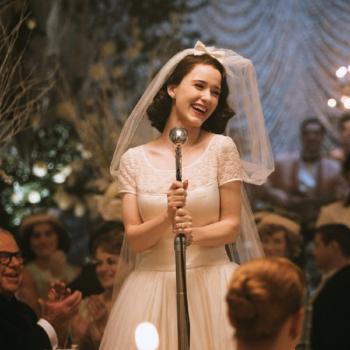—Naomi Shihab Nye, “Arabic Coffee”
The first thing that struck me about Moneerh was how much she terrified me: her face half-cloaked by her hijab, her dark eyes narrowed at me as I shuffled books, rushed through the steps of the lesson.
“Teacher, please slow down,” she said, her voice muffled, yet insistent. “Please.”
At the ESL center I help direct, most of our students are from the Middle East. They come on scholarships, looking to improve their English before they apply to American universities. Sisters are escorted to class by brothers and male cousins. Wives, many of them less than twenty years old, bring their husbands into my office to discuss failing grades, their eyes downcast while the husband shakes a report card at me, demanding that I “do something.”
Perhaps that’s what unsettled me about Moneerh, the way she stared directly at me, unwilling to let my bare arms and quick words disarm her.
In Saudi Arabia, where Moneerh is from, women are not allowed to drive, nor are they allowed to travel without an escort. I learned about this in an essay Moneerh wrote, arguing against the law that keeps her from driving a car.
“I do not think this is right,” she says, holding the paper in her slender hands. “If something happens to my mother, and I am the only person there, who will drive her to the hospital? So many women, they do not go to the doctor because they are afraid of a man seeing them; this is a shame in my country.”
I make sure to clearly mark her grammatical mistakes, and to write many comments in the margins; she has asked me to be thorough with her, to leave nothing unchecked. She consistently writes at least a hundred more words than her assignments require. When I ask about her weekend, she is firm: “I studied.”
Already twenty-five years old, Moneerh is an anomaly among our female students. She wants to marry, but also wants to wants to get her education, to “help society” by being a teacher in her home country. She has a degree in economics, but wants to add more degrees, attend more school.
Perhaps this is another reason that Moneerh challenges me: She moves with ease in a life that many would claim is restrictive. She commands the space around her, not in spite of her veiled body, but with the directness of someone who inhabits her life fully, whose words and actions are a single offering to a world that would easily dismiss her.
And what she offers is pure gift. On my birthday, she brings me a bottle of perfume. In class, she brings chocolates for her classmates. We share stories about cooking, and she brings me a container of Saudi spices and a jar of dates.
She kisses me on the cheek, and her eyes, still intent, crinkle with the smile that, though hidden from me, stretches across her face. I have seen students negotiate, and I know that the dates, the kiss, are not steps in that insidious dance.
The intensity Moneerh brings to her studies also moves her to laugh at my lame jokes, to weep at BBC reports about children’s deaths in Syria, her hand wiping tears away as she scrolls down a computer screen, unable to stop reading.
At church, I chat with an older woman. She begins talking about something she saw on the news, some angry flag burning in a Middle Eastern country, and my insides tighten.
“I just can’t understand why they are so violent over there,” she says. “Maybe if all those people got out of their pajamas and got jobs, they wouldn’t be in a such a mess.”
I know what she is reacting against. I know that I, too, have been afraid. But in that moment, I want to drag this woman to my classroom, to a small group of desks in a dingy university building, where Moneerh rushes against the clock, scribbling answers furiously on a test that she will fail, a test that will bring her into my office with angry, righteous tears: “I know that it was my mistake. But it is so hard, and I do not have much time here.”
I want to bring the woman from church to the small group of desks where Moneerh and I read Mary Oliver, where she flips the pages of Red Bird and exclaims loudly, “This! This is a good poem,” and strokes a line with her finger: I don’t want to live a small life.
This is what intimidates me about Moneerh the most—most days, I’d be content with a small life, one without demands or exertion. A life the opposite of Oliver’s lines: Open your eyes, open your hands.
In my classroom one day, I watch as Moneerh pulls a white carafe out of her backpack. She brings out small porcelain cups, a few candy bars. She sets the cups in front of us, and brings the carafe to me, pours a caramel stream of coffee.
“For you, teacher,” she says, eyes dark and smiling as she moves onto another classmate, another cup, all of us guests, our own eyes unable to look away.












